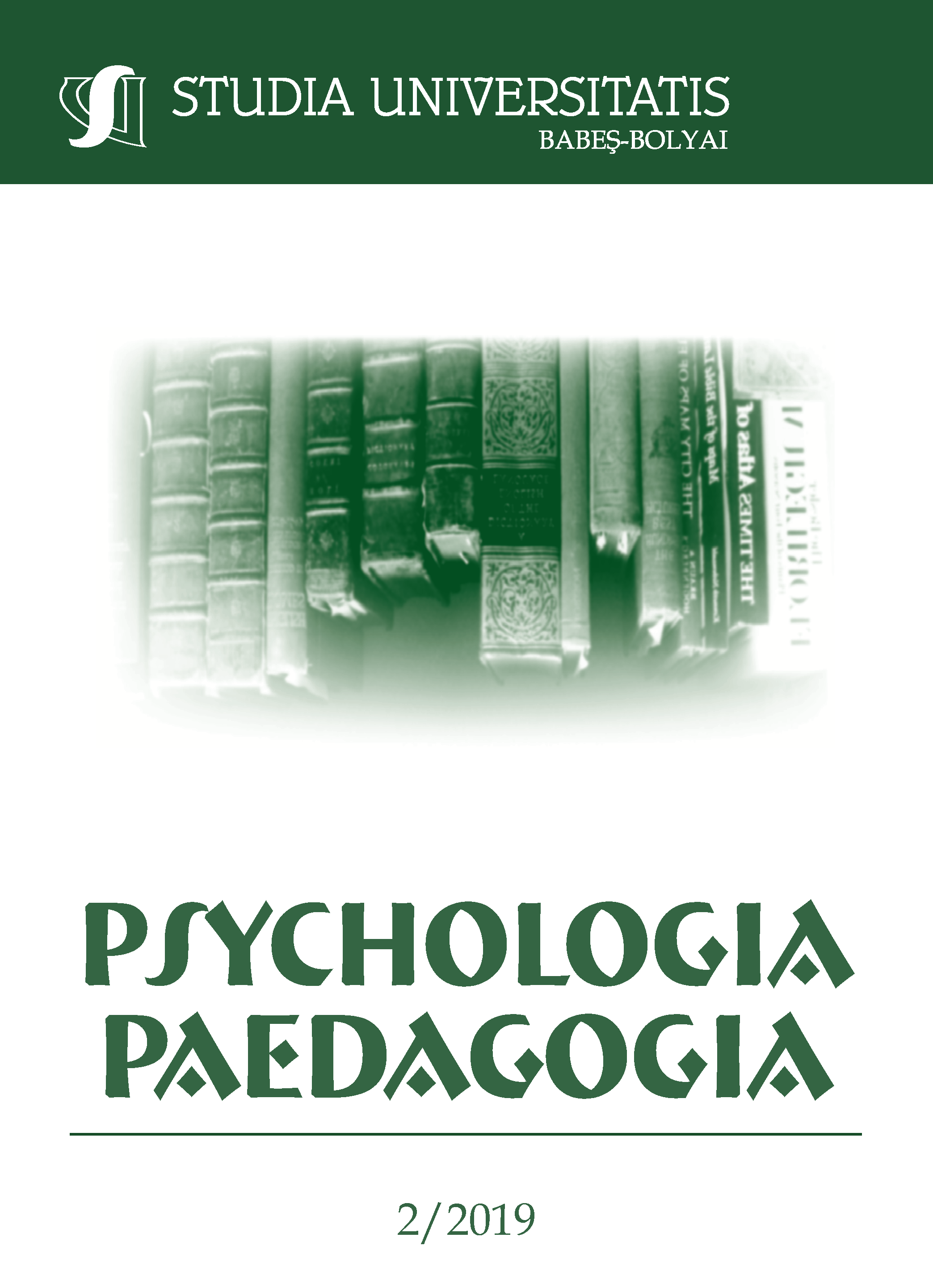THE IMPACT OF EXISTENTIAL FACTORS ON PARENTAL SELF-EFFICACY IN SELF-HELP GROUP. AN INTERVENTION PROGRAM FOR PARENTS OF CHILDREN WITH ADHD
DOI:
https://doi.org/10.24193/subbpsyped.2019.2.05Keywords:
parental self-efficacy, self-help groupAbstract
Several studies indicate a number of aspects concerning the relationship between parents and their children diagnosed with ADHD. This relationship is characterized by frequent and ongoing conflict and tension in their daily interactions. This article presents findings that emerged from a research that examined an original intervention program that led a parent’s guidance group based on Yalom’s (1995) group therapy approach. The aim of the intervention program was to elevate the participants’ parental self-efficacy in order to improve the relationship between their ADHD children on the daily conduction, and to instill management tools. The intervention program consisted of five factors from Yalom’s list of therapeutic factors. These factors according to Yalom (1995) exist predominantly in a group constellation. For this research, three dimensions of parental self-efficacy were chosen: self-trust, containment and communication. Qualitative data were collected and analyzed in the light of these dimensions. Twenty persons participated in the intervention program, i.e., five fathers and 15 mothers of children having ADHD symptoms. The intervention program consisted of nine meetings held once a week for about an hour and a half. Five interviews were conducted before the beginning of the intervention, and five post-experimental interviews were conducted as well. Findings reveal an improvement in the parents’ attitude toward their ADHD children by using efficiently the behavioral tools they obtained in the intervention program. The improvement is expressed by an increased containment ability, better communication and an increase of parental self-trust. These are the components of Parental Self-Efficacy (PSE) on which the research focused.References
Benedetto, L., & Ingrassia, M. (Eds.). (2018). Parenting: Empirical Advances and Intervention Resources. BoD–Books on Demand.
Bion, W.R. (1994). Learning from Experience. Rowman & Littlefield Jason Aronson.
Bowlby, J. (2008). A secure base: Parent-child attachment and healthy human development. Basic books.
Bowlby, J. (1982). Attachment and loss: retrospect and prospect. American journal of Orthopsychiatry, 52(4), 664.
Deault, L.C. (2010). A systematic review of parenting in relation to the development of comorbidities and functional impairments in children with attention-deficit/ hyperactivity disorder (ADHD). Child Psychiatry & Human Development, 41(2), 168-192.
Fabiano., et.al. (2009). A meta-analysis of behavioral treatments for attention- deficit/ hyperactivity disorder. Clinical psychology review, 29(2), 29-140.
Faraone., et.al. (2005). Molecular genetics of attention-deficit/hyperactivity disorder. Biological psychiatry, 57(11), 1313-1323.
Gordon, C.T., & Hinshaw, S.P. (2017). Parenting stress as a mediator between childhood ADHD and early adult female outcomes. Journal of Clinical Child & Adolescent Psychology, 46(4), 588-599.
Johnston, C., & Lee-Flynn, S. (2011). Parents’ attribution for child behavior: Relations to parent and child ADHD symptoms.’. In EK Coles (Chair), Gender differences in the clinical presentation, treatment and outcome of children with ADHD, Symposium presented at the Association for Behavioral and Cognitive Therapies, Toronto.
Johnston, C., & Mash, E.J. (2001). Families of children with attention-deficit/ hyperactivity disorder: review and recommendations for future research. Clinical child and family psychology review, 4(3), 183-207.
Levac, A.M., McCay, E., Merka, P., & Reddon‐D’Arcy, M.L. (2008). Exploring parent participation in a parent training program for children’s aggression: Understanding and illuminating mechanisms of change. Journal of child and adolescent psychiatric nursing, 21(2), 78-88.
Mathinos, D.A. (1991). Conversational engagement of children with learning disabilities. Journal of learning disabilities, 24(7), 439-446.
Rogers, C.R. (1958). The characteristics of a helping relationship. Journal of Counseling & Development, 37(1), 6-16.
Rogers, M.A., Wiener, J., Marton, I., & Tannock, R. (2009). Supportive and controlling parental involvement as predictors of children’s academic achievement: Relations to children’s ADHD symptoms and parenting stress. School Mental Health, 1(2), 89-102.
Shkedi, A. (2004) Words of Meaning: Qualitative Research Theory and Practice. Ramot Publishers, Tel Aviv University, Tel Aviv. (In Hebrew)
Yalom, I.D. (1995). The theory and practice of group psychotherapy. Basic Books (AZ).
Downloads
Published
How to Cite
Issue
Section
License
Copyright (c) 2019 Studia Universitatis Babeș-Bolyai Psychologia-Paedagogia

This work is licensed under a Creative Commons Attribution-NonCommercial-NoDerivatives 4.0 International License.





